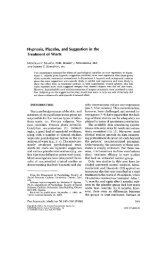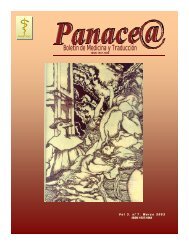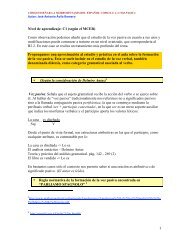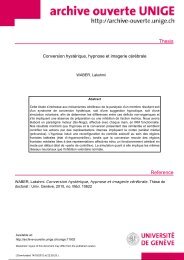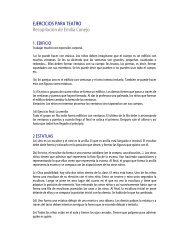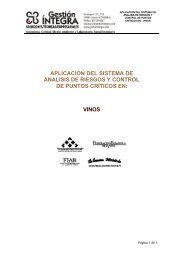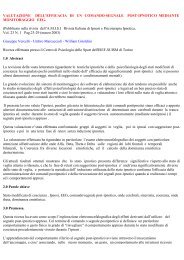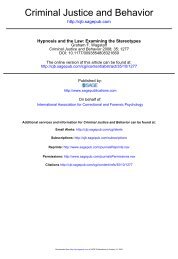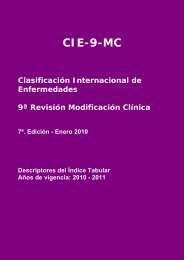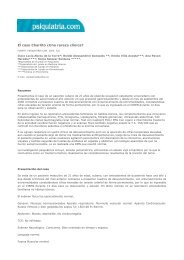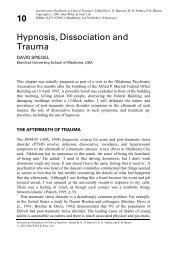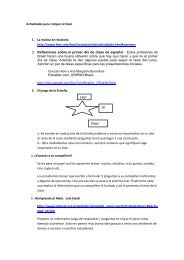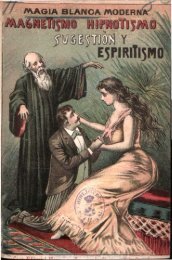Orne, M.T. The use and misuse of hypnosis in court. International ...
Orne, M.T. The use and misuse of hypnosis in court. International ...
Orne, M.T. The use and misuse of hypnosis in court. International ...
You also want an ePaper? Increase the reach of your titles
YUMPU automatically turns print PDFs into web optimized ePapers that Google loves.
<strong>Orne</strong> 1979 IJCEHhttp://www.sas.upenn.edu/psych/history/orne/orneijceh19794311341.html7 de 23 19/03/2012 17:24<strong>hypnosis</strong> on <strong>in</strong>creased memory are compared with those <strong>of</strong> <strong>in</strong>creased motivation (Cooper & London,1973), <strong>and</strong> procedures analogous to <strong>hypnosis</strong> with unhypnotizable subjects (Dhanens & Lundy, 1975),there is no significantly greater <strong>in</strong>crease <strong>in</strong> recall with <strong>hypnosis</strong>. Thus, the widely held belief that hypnoticsuggestion can not only <strong>in</strong>crease the amount but also the reliability <strong>of</strong> the material recalled ignoresmotivational factors on the one h<strong>and</strong>, <strong>and</strong> the concurrent dramatic <strong>in</strong>crease <strong>in</strong> the "recall" <strong>of</strong> <strong>in</strong>accurate<strong>in</strong>formation on the other. This is illustrated <strong>in</strong> the Stalnaker <strong>and</strong> Riddle study (1932). Depend<strong>in</strong>g upon howthey scored their material, these <strong>in</strong>vestigators could observe a 65 % <strong>in</strong>crease <strong>in</strong> memory for materiallearned many years earlier when recalled dur<strong>in</strong>g <strong>hypnosis</strong> rather than <strong>in</strong> the wake state. Such a figure isobta<strong>in</strong>ed if one simply looks at the amount <strong>of</strong> more accurate memories that are brought forth. At the sametime, however, subjects <strong>in</strong> the hypnotic condition vastly <strong>in</strong>creased the amount <strong>of</strong> <strong>in</strong>accurate details thatwere "remembered."<strong>The</strong> apparently <strong>in</strong>creased recall <strong>in</strong> <strong>hypnosis</strong> can <strong>in</strong> large part be understood if one takes <strong>in</strong>to account thedeeply hypnotized <strong>in</strong>dividual's tendency to manifest a decrease <strong>in</strong> critical judgment. <strong>The</strong> same processwhich <strong>in</strong>creases suggestibility by permitt<strong>in</strong>g the subject to accept counterfactual suggestions as real alsomakes it possible for the subject to accept approximations <strong>of</strong> memory as accurate. In the wake state he isunwill<strong>in</strong>g to consider approximate or fragmentary memories as acceptable recall; however, <strong>in</strong> <strong>hypnosis</strong> healters his criterion <strong>of</strong> what is acceptable <strong>and</strong> br<strong>in</strong>gs forth accurately recalled fragments mixed withconfabulated material.6 When <strong>hypnosis</strong> is <strong>use</strong>d <strong>in</strong> the context <strong>of</strong> gather<strong>in</strong>g <strong>in</strong>vestigative leads, such achange <strong>in</strong> criterion is desirable s<strong>in</strong>ce it will ca<strong>use</strong> a witness to br<strong>in</strong>g forth bits <strong>of</strong> <strong>in</strong>formation which hewould not6 This process may well be analogous to a change <strong>in</strong> subjective criterion <strong>of</strong> sensory thresholds <strong>of</strong> the k<strong>in</strong>dwhich led to the application <strong>of</strong> signal detection theory to problems <strong>of</strong> psychophysics.320 MARTIN T. ORNEotherwise have felt confident enough to report--provided, <strong>of</strong> course, one recognizes that these fragmentsare made available at the cost <strong>of</strong> add<strong>in</strong>g other details which are likely to be <strong>in</strong>accurate. Further, neither thesubject nor the expert observer can dist<strong>in</strong>guish between confabulation <strong>and</strong> accurate recall <strong>in</strong> any particular<strong>in</strong>stance. <strong>The</strong> only way this can be accomplished is on the basis <strong>of</strong> external corroborative data.<strong>The</strong> Confusion <strong>of</strong> Memories dur<strong>in</strong>g Hypnosis with Wak<strong>in</strong>g Recall <strong>and</strong> Its Effect on Subjective ConvictionWhen a subject is hypnotized <strong>and</strong> told to remember the events <strong>of</strong> a particular day (<strong>and</strong> awakened withoutamnesia suggestions), he may be able subsequently, <strong>in</strong> the wake state, to describe his recollections <strong>in</strong><strong>hypnosis</strong> <strong>and</strong> clearly differentiate them from his earlier recollections before be<strong>in</strong>g hypnotized. It is anothermatter, however, if the subject is conv<strong>in</strong>ced before be<strong>in</strong>g hypnotized that he will have the "true facts" thathe is now unable to remember, or if prior to awaken<strong>in</strong>g, the subject is given the suggestion that he willwake up <strong>and</strong> remember everyth<strong>in</strong>g, <strong>in</strong>clud<strong>in</strong>g the details <strong>of</strong> what actually occurred on that particular day,<strong>and</strong> that he will be able to recall all details as vividly <strong>and</strong> clearly <strong>in</strong> the wake state as <strong>in</strong> <strong>hypnosis</strong>. Underthese circumstances, he will typically awaken <strong>and</strong> confound the hypnotic memories with his wak<strong>in</strong>gmemories. Such suggestions, which are now widely <strong>use</strong>d for forensic purposes, result <strong>in</strong> the <strong>in</strong>dividual'stend<strong>in</strong>g to accept the events he relived <strong>in</strong> <strong>hypnosis</strong> as if they were what actually happened. <strong>The</strong> previousgaps or uncerta<strong>in</strong>ties <strong>in</strong> his memory are now filled <strong>in</strong>, <strong>and</strong> the events as they were relived <strong>in</strong> <strong>hypnosis</strong>become his recollection <strong>of</strong> what actually occurred on the day <strong>in</strong> question.<strong>The</strong> witness who testifies follow<strong>in</strong>g such a procedure may even fail to be able to dist<strong>in</strong>guish which <strong>of</strong> hismemories occurred <strong>in</strong> <strong>hypnosis</strong> <strong>and</strong> which came about as part <strong>of</strong> his normal wak<strong>in</strong>g recollection. Instead<strong>of</strong> differentiat<strong>in</strong>g between his earlier fragmentary recall <strong>and</strong> the gaps that have been filled <strong>in</strong>--perhaps bypseudomemories created dur<strong>in</strong>g <strong>hypnosis</strong>--he experiences the totality as his recollection <strong>of</strong> what hadorig<strong>in</strong>ally transpired. It is this new recollection that is conv<strong>in</strong>c<strong>in</strong>gly reported when the <strong>in</strong>dividual is askedwhat happened. Even though prior to <strong>hypnosis</strong> he had been very uncerta<strong>in</strong> about his memory, had



